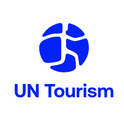UNWTO Announces List of ‘Best Tourism Villages’ 2021
The best examples of villages embracing tourism to provide opportunity and drive sustainable development have been celebrated at the World Tourism Organization (UNWTO) General Assembly in Madrid.
The Best Tourism Villages by UNWTO initiative was launched to advance the role of tourism in safeguarding rural villages, along with their landscapes, natural and cultural diversity, and their local values and activities, including local gastronomy.
A total of 44 villages from 32 countries across the five world regions were granted the recognition in 2021. All of them stand out for their natural and cultural resources as well as for their innovative and transformative actions and commitment to the development of tourism in line with the Sustainable Development Goals (SDGs).
The villages were evaluated by an independent Advisory Board based on a set of criteria covering nine areas:
- Cultural and Natural Resources
- Promotion and Conservation of Cultural Resources
- Economic Sustainability
- Social Sustainability
- Environmental Sustainability
- Tourism Potential and Development and Value Chain Integration
- Governance and Prioritization of Tourism
- Infrastructure and Connectivity
- Health, Safety and Security
All of the 44 chosen villages scored a total of 80 or more points or more out of a possible 100.
Tourism as a driver of rural development and inclusion
“Tourism can be a driver of social cohesion and inclusion by promoting a fairer distribution of benefits throughout the territory and empowering local communities,” says UNWTO Secretary-General Zurab Pololikashvili. “This initiative recognizes those villages committed to making tourism a strong driver of their development and wellbeing.”
The Best Tourism Villages by UNWTO initiative includes three pillars:
- The ‘Best Tourism Villages by UNWTO’: Recognizes villages which are an outstanding example of a rural tourism destination with recognized cultural and natural assets, that preserve and promote rural and community-based values, products and lifestyle and have a clear commitment to innovation and sustainability in all its aspects – economic, social and environmental.
- The ‘Best Tourism Villages by UNWTO’ Upgrade Programme: The Upgrade programme will benefit a number of villages that do not fully meet the criteria to receive the recognition. These villages will receive support from UNWTO and its Partners in improving elements of the areas identified as gaps in the evaluation process.
- The ‘Best Tourism Villages by UNWTO’ Network: The Network will provide a space for exchanging experiences and good practices, learnings, and opportunities. It will include representatives of the villages recognized as the ‘Best Tourism Village by UNWTO’, the villages participating in the Upgrade Programme, as well as experts, public and private sector partners engaged in the promotion of tourism for rural development.
A total 174 villages were proposed by 75 UNWTO Member States (each Member State could present a maximum of three villages) for the 2021 pilot initiative. Among which 44 were recognized as Best Tourism Villages by UNWTO. Another 20 villages will enter the Upgrade Programme of the Initiative. All 64 villages enter to make part of the UNWTO Best Tourism Villages Network.
The next edition will open in February 2022.
List of Best Tourism Villages by UNWTO 2021:
- Bekhovo, Russian Federation
- Bkassine, Lebanon
- Bojo, Philippineshe
- Caspalá, Argentina
- Castelo Rodrigo, Portugal
- Cuetzalan del Progreso, Mexico
- Cumeada, Portugal
- Gruyères, Switzerland
- Batu Puteh , Malaysia
- Kaunertal, Austria
- Le Morne, Mauritius
- Lekunberri, Spain
- Maní, Mexico
- Misfat Al Abriyeen, Oman
- Miyama, Japan
- Mokra Gora, Serbia
- Morella, Spain
- Mustafapaşa, Turkey
- Nglanggeran, Indonesia
- Niseko, Japan
- Nkotsi Village, Rwanda
- Old Grand Port, Mauritius
- Olergesailie, Kenya
- Ollantaytambo, Peru
- Pano Lefkara, Cyprus
- Pica, Chile
- Pochampally, India
- Puerto Williams, Chile
- Radovljica, Slovenia
- Rijal Alma'a, Kingdom of Saudi Arabia
- Testo Alto, Brazil
- Saas Fee, Switzerland
- San Cosme y Damián, Paraguay
- San Ginesio, Italy
- Sidi Kaouki, Morocco
- Solčava, Slovenia
- Soufli, Greece
- Taraklı, Turkey
- The Purple Island, Republic of Korea
- Ungok Village, Republic of Korea
- Valposchiavo, Switzerland
- Wonchi, Ethiopia
- Xidi, China
- Yucun, China
Additionally, UNWTO will work with the following villages participating in the Upgrade Programme:
- Ordino, Andorra
- Khinalig, Azerbaijan
- Koprivshtitsa, Bulgaria
- Kaštelir Labinci, Croatia
- Agros, Cyprus
- Fuwah, Egypt
- Western Samos, Greece
- Hollókő, Hungary
- Biei, Japan
- Capulálpam de Méndez, Mexico
- Godinje, Montenegro
- Gornja Lastva, Montenegro
- Oukaimeden, Morocco
- Barangay Tenani, Philippines
- Gasura, Rwanda
- Gostilje, Serbia
- Gorenja Vas, Slovenia
- Cantavieja, Spain
- Bo Suak, Thailand
- Ruboni, Uganda
RELATED LINKS:
About UN Tourism
The World Tourism Organization (UN Tourism), a United Nations specialised agency, is the leading international organisation with the decisive and central role in promoting the development of responsible, sustainable and universally accessible tourism. It serves as a global forum for tourism policy issues and a practical source of tourism know-how. Its membership includes 166 countries, 6 territories, 2 permanent observers and over 500 Affiliate Members from the private sector.
Media enquires: [email protected]
UN Tourism Communications Department
+34 91 567 8100
UN Tourism
